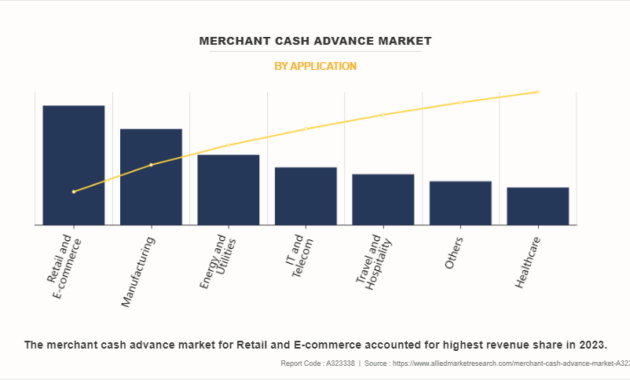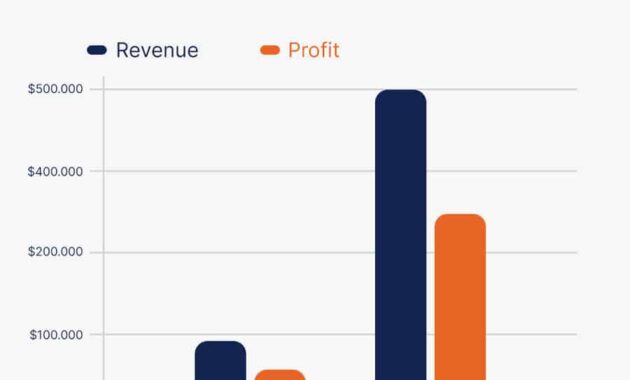Cyber Liability Insurance: A Lifeline for Small Businesses in the Digital Age
The ever-evolving digital landscape has exposed small businesses to a multitude of cyber threats, ranging from data breaches and ransomware attacks to phishing scams and social engineering. These incidents can inflict devastating financial and reputational damage, threatening the very existence of these enterprises. Enter cyber liability insurance – a lifeline for small businesses seeking to mitigate the risks and protect their livelihoods in an increasingly perilous digital realm.
Understanding Cyber Liability Insurance
Cyber liability insurance is a specialized type of insurance designed to safeguard businesses from the financial consequences of cybersecurity breaches and data security incidents. It covers a wide range of expenses incurred as a result of such events, including:
- Legal defense costs: The fees associated with defending against claims alleging negligence, invasion of privacy, or breach of contract stemming from a cyber incident.
- Settlement and judgment costs: The amounts paid to settle or satisfy court judgments arising from cyber-related liabilities.
- Notification costs: The expenses incurred in notifying affected parties about a data breach or security incident, as required by law.
- Forensic investigation costs: The fees charged by cybersecurity professionals to investigate the circumstances of a cyber incident and determine its scope and impact.
- Business interruption expenses: The loss of revenue and other financial losses resulting from a cyber incident that disrupts normal business operations.
Cyber liability insurance serves as a financial safety net for small businesses, providing them with the resources necessary to weather the storm of a cyber attack and minimize its business impact.
Types of Cyber Liability Coverage
Cyber liability insurance policies vary in terms of coverage and exclusions. It is crucial for small businesses to carefully review the terms and conditions of a policy before purchasing it to ensure that it aligns with their specific needs and risk profile. Common types of coverage include:
- First-party coverage: This coverage protects businesses from losses incurred as a direct result of a cyber incident, such as the costs of data recovery, forensic investigations, and business interruption.
- Third-party coverage: This coverage protects businesses from claims made by third parties, such as customers or vendors, who have suffered losses due to a cyber incident caused by the business.
- Regulatory fines and penalties coverage: This coverage protects businesses from the financial penalties imposed by government agencies for non-compliance with data privacy and security regulations.
Benefits of Cyber Liability Insurance for Small Businesses
Cyber liability insurance offers a plethora of benefits to small businesses, including:
- Peace of mind: Knowing that they have financial protection in the event of a cyber incident can give small business owners peace of mind, allowing them to focus on growing their business without the constant worry of cyber threats.
- Financial security: Cyber incidents can be extremely costly, and the financial burden can cripple a small business. Cyber liability insurance helps to offset these costs and ensures that businesses can continue to operate after a breach.
- Reputational protection: A cyber incident can damage a business’s reputation and erode customer trust. Cyber liability insurance can help businesses manage the public relations fallout of a breach and protect their brand.
- Legal compliance: Many states and industries have enacted laws that require businesses to have cyber liability insurance. Having this coverage in place ensures that businesses remain compliant with these regulations.
Cyber Liability Insurance: A Shield Against the Growing Threat of Cyberattacks for Small Businesses
As technology becomes increasingly intertwined with business operations, small businesses face a growing threat from cyberattacks. From data breaches to ransomware attacks, these threats can wreak havoc on a company’s finances, reputation, and even its ability to operate. To mitigate these risks, cyber liability insurance has emerged as a crucial tool for small businesses, providing a safety net against the financial consequences of a cyberattack.
Benefits of Cyber Liability Insurance
Cyber liability insurance offers a comprehensive suite of benefits that can safeguard small businesses from the financial fallout of a cyberattack. These benefits include:
- Coverage for Data Breach Expenses: Data breaches can expose sensitive information, such as customer data, financial records, and intellectual property, leading to significant financial losses. Cyber liability insurance covers the costs associated with data breach response, including forensic investigation, notification to affected parties, and credit monitoring.
- Protection Against Ransomware Attacks: Ransomware attacks encrypt a company’s computer systems, demanding a ransom payment for their release. Cyber liability insurance covers the costs of decrypting systems, negotiating with attackers, and restoring lost data.
- Third-Party Liability Coverage: Cyberattacks can also lead to liability claims from third parties, such as customers or business partners, who have been harmed as a result of the breach. Cyber liability insurance provides coverage for these claims, protecting the company from financial ruin.
- Peace of Mind and Financial Stability: Cyber liability insurance provides peace of mind and financial stability in the face of a cyberattack. Small businesses can rest assured that they have a safety net in place to cover the costs of a breach, reducing the risk of financial hardship and allowing them to focus on rebuilding their operations.
Why Small Businesses Need Cyber Liability Insurance
Small businesses are particularly vulnerable to cyberattacks due to their limited resources and lack of cybersecurity expertise. They often lack the in-house capabilities to detect and prevent attacks, leaving them exposed to data breaches and other threats. Cyber liability insurance provides a cost-effective way for small businesses to protect themselves from the financial consequences of a cyberattack, safeguarding their finances and ensuring their continued operation.
Understanding Cyber Liability Insurance Coverage
Cyber liability insurance policies vary in terms of their coverage and limits. It’s important for small businesses to carefully review the policy to understand what is covered and what is not. Key coverage elements to consider include:
- Data Breach Coverage: This covers the costs associated with data breach response, including forensic investigation, notification to affected parties, and credit monitoring.
- Ransomware Coverage: This covers the costs of decrypting systems, negotiating with attackers, and restoring lost data.
- Third-Party Liability Coverage: This covers claims from third parties who have been harmed as a result of a data breach or cyberattack.
- Policy Limits: It’s important to understand the policy limits for each type of coverage to ensure adequate protection.
Choosing the Right Cyber Liability Insurance Policy
When choosing a cyber liability insurance policy, small businesses should consider the following factors:
- The Size and Nature of Their Business: The coverage needs of a small business will vary depending on its size, industry, and data handling practices.
- The Likelihood of a Cyberattack: Some businesses are more likely to be targeted by cybercriminals, such as those that handle sensitive information or have a large online presence.
- The Cost of Coverage: Cyber liability insurance premiums can vary widely. Small businesses should compare quotes from multiple insurers to find the best coverage at a reasonable cost.
Conclusion
Cyber liability insurance is an essential tool for small businesses facing the growing threat of cyberattacks. By providing comprehensive coverage for data breach expenses, ransomware attacks, and third-party liability, cyber liability insurance safeguards small businesses’ finances and ensures their continued operation in the face of cyber threats. Small businesses should carefully review their insurance needs and choose a policy that provides adequate protection at a reasonable cost.
Cyber Liability Insurance for Small Businesses: Navigating the Digital Wild West
In today’s tech-driven landscape, it’s not just big corporations who need to worry about cyber threats. Small businesses, too, are facing an ever-increasing barrage of attacks, from phishing scams to ransomware. And the consequences can be devastating. A single cyberattack can cost a small business thousands of dollars in lost revenue, damaged reputation, and legal liability.
That’s where cyber liability insurance comes in. This type of insurance can help small businesses protect themselves from the financial and legal risks associated with data breaches and other cyberattacks. If you’re a small business owner, you need to consider getting cyber liability insurance. It could be the difference between weathering a cyberstorm and going under.
Who Needs Cyber Liability Insurance?
Any small business that uses technology to store or process sensitive data is at risk of a cyberattack. This includes businesses that:
- Store customer information, such as names, addresses, and credit card numbers
- Process financial transactions online
- Use email to communicate with customers or clients
- Have a website or social media presence
If your business falls into any of these categories, you should consider getting cyber liability insurance. It’s a relatively small investment that could save you a lot of money and heartache in the event of a cyberattack.
What Does Cyber Liability Insurance Cover?
Cyber liability insurance policies vary, but they typically cover the following:
- First-party coverage: This coverage reimburses you for the costs of responding to a cyberattack, such as hiring a forensic investigator, notifying customers, and repairing damaged systems.
- Third-party coverage: This coverage protects you from liability if a cyberattack causes harm to a third party, such as a customer or vendor. For example, if a hacker steals customer data from your website and uses it to commit identity theft, your cyber liability insurance could cover the costs of defending yourself against a lawsuit.
- Cyber extortion coverage: This coverage reimburses you for the costs of paying a ransom to a hacker who has threatened to release sensitive data or disrupt your business operations.
The specific limits of coverage and deductibles will vary depending on the policy you choose. It’s important to work with an insurance agent to find a policy that meets your specific needs.
How Much Does Cyber Liability Insurance Cost?
The cost of cyber liability insurance varies depending on a number of factors, such as the size of your business, the industry you’re in, and the coverage limits you choose. However, it’s generally a relatively affordable type of insurance. Many small businesses can get coverage for a few hundred dollars per year.
Given the potential costs of a cyberattack, cyber liability insurance is a wise investment for any small business. It can give you peace of mind knowing that you’re protected in the event of a data breach or other cyber incident.
What Are the Benefits of Cyber Liability Insurance?
There are many benefits to getting cyber liability insurance, including:
- Peace of mind: Knowing that you’re protected from the financial and legal risks of a cyberattack can give you peace of mind.
- Financial protection: Cyber liability insurance can help you cover the costs of responding to a cyberattack, such as hiring a forensic investigator, notifying customers, and repairing damaged systems.
- Legal protection: Cyber liability insurance can protect you from liability if a cyberattack causes harm to a third party, such as a customer or vendor.
- Competitive advantage: Having cyber liability insurance can give you a competitive advantage over businesses that don’t have coverage. It shows that you’re taking cybersecurity seriously and that you’re committed to protecting your customers’ data.
How to Get Cyber Liability Insurance?
If you’re interested in getting cyber liability insurance, you should contact an insurance agent. They can help you find a policy that meets your specific needs and budget.
Here are a few tips for getting cyber liability insurance:
- Do your research: Before you contact an insurance agent, take some time to research different cyber liability insurance policies. This will help you understand the coverage options and costs involved.
- Be prepared to provide information: When you contact an insurance agent, they will ask you for information about your business, such as the size of your business, the industry you’re in, and the type of data you store or process.
- Compare quotes: Once you’ve received quotes from a few different insurance companies, compare the coverage and costs to find the best policy for your needs.
Conclusion
Cyber liability insurance can provide small businesses with the necessary protection to deal with the risks of cyberattacks. By understanding the coverage options and costs, businesses can select a policy that meets their specific needs and budget. Investing in cyber liability insurance can give small businesses peace of mind and protect their financial and legal interests in the event of a cyberattack.
Cyber Liability Insurance: Essential Protection for Small Businesses in the Digital Age
Cyberattacks are as common as the common cold in today’s digital world. Small businesses, the backbone of our economy, are particularly vulnerable to these threats. A single data breach can cripple a small business, costing it millions in lost revenue, reputation damage, and legal fees.
Enter cyber liability insurance, the knight in shining armor for small businesses. It’s a specialized insurance policy that protects businesses from financial losses resulting from cyberattacks, data breaches, and other cybersecurity incidents.
Coverage Options
Cyber liability insurance policies typically cover a wide range of expenses, including:
- Data Breach Notification: Covering the costs of notifying affected individuals about a data breach.
- Legal Defense: Paying for the legal fees associated with defending against lawsuits stemming from a cyberattack.
- Regulatory Fines: Covering the penalties imposed by government agencies for non-compliance with data protection laws.
- Credit Monitoring: Providing affected individuals with credit monitoring services to protect them against identity theft.
Why Small Businesses Need Cyber Liability Insurance
Small businesses often don’t have the resources to combat the financial fallout from a cyberattack. Without adequate insurance, they may be forced to close their doors or face financial ruin. Cyber liability insurance provides a safety net, giving small businesses peace of mind and the ability to focus on their core operations.
How to Find the Right Policy
Finding the right cyber liability insurance policy for your small business is crucial. Consider the following:
- Your Business’s Risk Exposure: Assess the likelihood of your business experiencing a cyberattack based on factors such as the industry you operate in, the type of data you collect, and the security measures you have in place.
- Coverage Limits: Determine the maximum amount of coverage you need to protect your business from financial losses.
- Premiums: Compare premiums from multiple insurance companies to find the most competitive rate.
Conclusion
Cyber liability insurance is an invaluable investment for small businesses. It provides peace of mind and financial protection against the growing threats of cyberattacks. By carefully considering your business’s unique needs and choosing the right policy, you can mitigate the risks associated with cybersecurity incidents and ensure the long-term success of your enterprise.
Cyber Liability Insurance: A Lifeline for Small Businesses in the Digital Age
In the lightning-fast world of the internet, where data breaches and cyberattacks strike like bolts from the blue, small businesses stand vulnerable to the devastating consequences of these digital storms. Every click, every swipe, and every transaction carries the potential for a cyber risk that could cripple a company’s finances and reputation. Enter cyber liability insurance – the lifeline that small businesses need to weather these digital tempests and safeguard their future.
Defining Cyber Liability Insurance
Cyber liability insurance is a specialized form of coverage designed to protect businesses from the financial fallout of cyberattacks, data breaches, and other cybersecurity incidents. It serves as a safety net, shielding businesses from the hefty costs associated with legal liability, data recovery, and reputation management.
Why Small Businesses Need Cyber Liability Insurance
With the rise of cybercrime and the increasing sophistication of cyberattacks, small businesses are facing an unprecedented level of risk. A single data breach can unleash a torrent of financial and operational headaches, including:
- Legal fees and settlements
- Data recovery and restoration expenses
- Business interruption and loss of revenue
- Damage to reputation and loss of customer trust.
Cyber liability insurance provides a critical safety net, helping small businesses mitigate these risks and ensuring their ability to bounce back from cyberattacks.
Coverage Options and Considerations
Cyber liability insurance policies vary in coverage and limits, so it’s crucial to choose a policy that aligns with your business’s specific needs. Common coverage options include:
- Data breach coverage: Protects against financial losses resulting from a data breach, including legal fees, data recovery costs, and notification expenses.
- Cyber extortion coverage: Covers expenses incurred in responding to cyber extortion attempts, such as ransom payments and negotiation fees.
- Business interruption coverage: Reimburses lost income and expenses resulting from a cyberattack that disrupts business operations.
- Cyber liability coverage: Protects against legal liability for damages caused to third parties due to a cyberattack or data breach.
When choosing a cyber liability insurance policy, consider your business’s size, industry, and the types of data you handle. Consult with an insurance professional to determine the coverage limits and deductibles that are right for your business.
Benefits of Cyber Liability Insurance
Cyber liability insurance offers a multitude of benefits for small businesses, including:
- Financial protection: Covers the costs associated with cyberattacks, preventing them from draining your business’s resources.
- Peace of mind: Knowing that your business is protected from cyber risks can give you peace of mind and allow you to focus on growing your business.
- Protection against legal liability: Cyber liability insurance safeguards your business from lawsuits and financial damages resulting from cyberattacks.
- Improved reputation management: In the event of a data breach, cyber liability insurance can help you manage the fallout and protect your reputation.
Investing in cyber liability insurance is an essential step towards safeguarding your business in the digital age. It’s like putting on a life jacket before venturing into the choppy waters of the internet.
Common Cyberattacks and Risks
Understanding the types of cyberattacks and risks your business faces is crucial for selecting the right cyber liability insurance policy. Some common cyberattacks include:
- Phishing: Fraudulent emails or websites that trick users into revealing sensitive information.
- Malware: Malicious software that can infect computers and networks, causing damage and data theft.
- Ransomware: A type of malware that encrypts data and demands payment for its release.
- Data breaches: Unauthorized access to and theft of sensitive data, including customer information, financial records, and trade secrets.
- DDoS attacks: Distributed denial-of-service attacks that overwhelm websites and online services, causing them to become unavailable.
These cyberattacks can have devastating consequences for small businesses, so it’s vital to have a plan in place to mitigate these risks and protect your business.
Conclusion
In today’s digital landscape, cyber liability insurance is not just a luxury – it’s a necessity for small businesses. It’s the ultimate safeguard against the financial and operational fallout of cyberattacks, providing peace of mind and ensuring business continuity. Don’t let your business become a victim of the digital storm – invest in cyber liability insurance today and weather any cyber tempest that comes your way.












